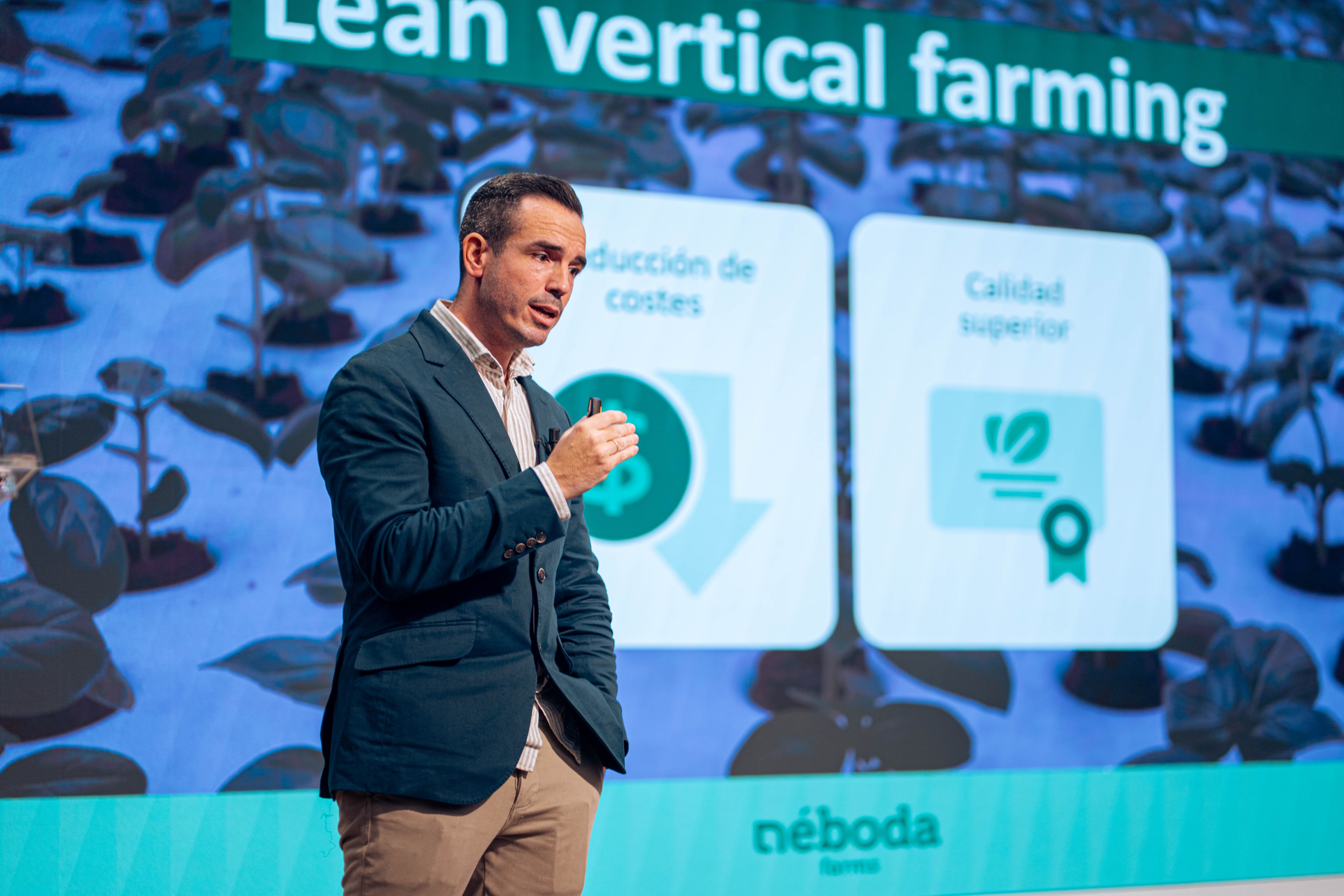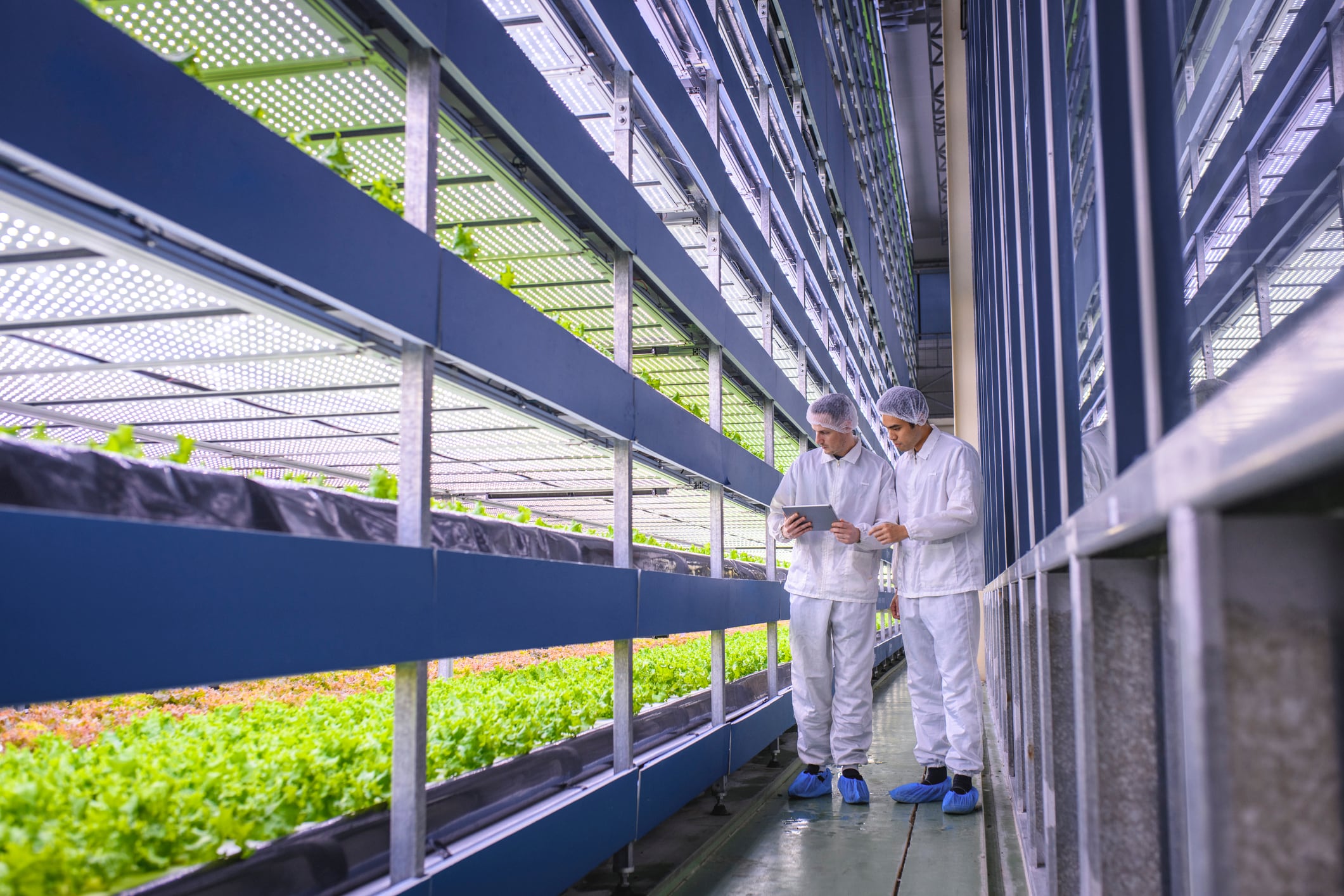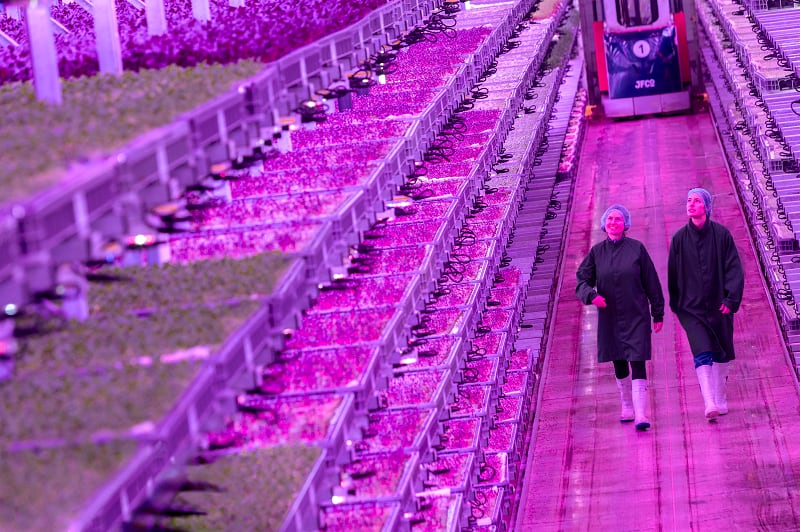Néboda is aiming to validate key business metrics and establish commercial agreements with major fresh produce distributors across the Iberian Peninsula after raising €1.84 million in seed funding.
The round – backed by investors including Clave Capital (through its Mondragon Fondo de Promoción II), Unirisco, Xesgalicia, Eatable Adventures, and CDTI through its SICC Innvierte – will lay the groundwork for Néboda’s first industrial-scale production plant and a Series A round expected in 2026.
“We have tackled one of the biggest challenges in vertical farming: cost competitiveness,” Néboda’s founder and CEO Iván García Besada told AgTechNavigator.
“Our proprietary technology platform applies lean manufacturing principles and a high degree of automation, allowing us to achieve crop yields well above the industry average while reducing both OPEX and CAPEX.”
‘A highly efficient system’
Founded in 2019, Néboda’s platform integrates hydroponics, robotics and artificial intelligence to grow pesticide-free leafy greens and aromatic herbs such as basil.
Currently, the company operates a 200 m² pre-industrial facility in Galicia with an annual output of 8,000 kg, which is sold via fruit and vegetable distributors in Spain and Portugal.
“We have built a highly efficient system with a relatively small team compared to other global vertical farming start-ups, demonstrating strong technical development and scalability,” Besada said.
“Our R&D team has achieved extraordinary breakthroughs in biological efficiency, significantly boosting crop yield and lowering operational costs.”
Also key to securing the funds was a commercially validated business model offering stable and predictable production that ensures a continuous supply at prices comparable to traditional agriculture, but with “superior quality and shelf life”, Besada said.
Pilot launches planned for 2025
The seed round will be mostly used to complete the construction and automation of the company’s pre-industrial facility. “A significant portion of the funds will be invested in automation equipment – such as seeding, handling, packaging – process optimization, and R&D for our new mesclun salad line, with pilot launches planned for 2025," Besada revealed.
It will also allocate resources to business development to secure long-term supply agreements with distributors and prepare for a Series A round aimed at building its first industrial-scale plant.

Backers want a ‘clear path to sustainable margins’
In 2023, Néboda was selected by Eatable Adventures to join its Spain Foodtech acceleration programme, becoming part of its international investment portfolio.
Raising capital in the current climate has been “challenging”, Besada explained, particularly in agtech, where investors are highly focused on profitability and operating costs.
He advised other start-ups focus on the profitability of the model from the early stages – prioritising the validation of KPIs related to costs and production efficiency.
Investors today are not just looking for innovation, but for a clear path to sustainable margins, Besada pointed out.
“We believe it is crucial to build a modular, scalable system that allows the model to be validated with limited investments before moving to industrial scale, demonstrating clear price competitiveness against traditional agriculture,” he said.
“Working with distributors and potential customers from the start is also key to understanding the market and adapting the product to their needs.”
It is “essential” to convey a “solid yet realistic vision”, he added. “Vertical farming has great potential, but success depends on balancing technological development, operational efficiency, and a strong go-to-market strategy to build investor confidence in a challenging funding environment.”





